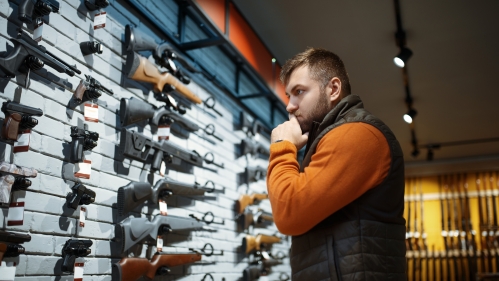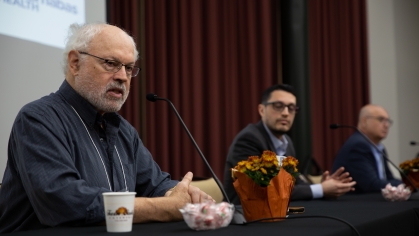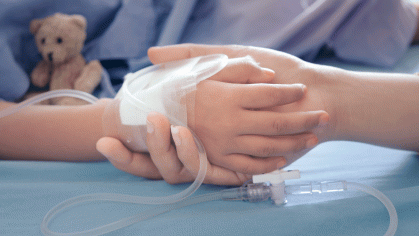Those Who Avoided COVID-19 Precautions Early in the Pandemic Are More Likely to Buy Firearms

Rutgers researchers analyze how different communities view, manage and respond to risk
People who avoid COVID-19 precautions to prevent illness are more likely to purchase firearms – a pattern of behavior most common among moderate and conservative individuals, according to a Rutgers study.
The researchers surveyed a sample of 6,404 adults from three states: Minnesota, Mississippi and New Jersey. The survey was conducted in early 2021, before COVID-19 vaccines were widespread, and participants were asked about their intent to receive a COVID-19 vaccine, how often they wear masks in public, how regularly they receive a flu vaccine, how they characterize their political beliefs, and who they voted for in the 2020 Presidential election.
The researchers then used a statistical method called latent class analysis to see if these behaviors and intents cluster together in a way that creates distinct groups and whether such groups differ in their firearm purchasing behaviors.
Their study appears in the Journal of Social and Clinical Psychology.
The researchers considered each of these behaviors as defensive behaviors aimed to keep individuals and their communities safe from illness or physical attacks.
The analysis indicated there were four groups based upon these defensive behaviors and political beliefs. The first group, marked by liberal political views, engaged in many defensive behaviors to avoid illness and more than 98 percent voted for Joe Biden. The second group, marked by moderate political views, engaged in very few defensive behaviors to avoid illness and more than 73 percent voted for Joe Biden. The third group, marked by conservative political beliefs, engaged in very few defensive behaviors to avoid illness and more than 90 percent voted for Donald Trump. In the fourth group, also marked by conservative political beliefs, individuals engaged in many defensive behaviors to avoid illness and more than 73 percent voted for Donald Trump.
The groups that engaged in few behaviors to avoid illness were more likely to have purchased firearms since March 2020, when a surge in firearm sales took hold nationwide. Those same groups also endorsed less faith that scientists act in the best interests of the public.
“These finding highlight that different communities view and respond to risk differently and that they trust different sources to provide them with information on how to manage that risk,” said Michael Anestis, executive director of the New Jersey Gun Violence Research Center at Rutgers, an associate professor at Rutgers School of Public Health and lead author of the study. “Some individuals saw very little risk from illness, even early in the pandemic, and generally avoided precautions like mask wearing and vaccines that could have protected them and their communities.
These same communities, however, appeared to have concerns about being harmed by other people and, as a result, engaged in a behavior they viewed as capable of keeping them safe in that domain: firearm purchasing, Anestis said.
“Given their lower levels of faith in the intentions of scientists, this skewed perception of risk might be driven in part by a tendency to receive information from sources that are not informed by data,” he said.
The authors noted that although these individuals were less likely to have purchased firearms since 2020, the groups marked by engaging in many defensive behaviors to avoid illness had a higher percentage of members who became first time firearm owners since March 2020.
“It might be that the chaos of 2020 and 2021 caused some individuals who otherwise would not have become firearm owners to see risk differently and purchase a firearm for the first time,” Anestis said. “We need to be aware of the changing demographics of firearm ownership, because risk might be different in those communities.”
The authors said the two conservative groups were noteworthy in one other way: The conservative group that endorsed engaging in more defensive behaviors to avoid illness endorsed more conservative beliefs than the conservative group that engaged in few defensive behaviors to avoid illness, but they were substantially less likely to have voted for Donald Trump in the 2020 presidential election.



